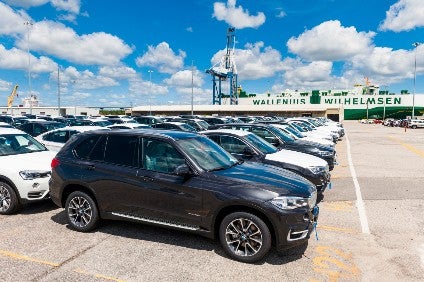
BMW is to raise prices in China on the back of higher import tariffs levied on vehicles shipped there from the US.
BMW in China is to raise prices on its X5 and X6 models assembled in Spartanburg, South Carolina, rise by 4% and 7%.

Discover B2B Marketing That Performs
Combine business intelligence and editorial excellence to reach engaged professionals across 36 leading media platforms.
China has slapped an additional 25% import tariff on US-made cars as part of its response to tariffs imposed on Chinese made goods by the US.
BMW is the US’s largest vehicle exporter to China by value and its Spartanburg plant – which specialises in SUVs – is its largest factory in the world.
“BMW stands for free trade but can’t stand still without taking actions to respond to the market changes,” the group said in a statement.
BMW and Daimler are exposed by the burgeoning trade war between the US and China because they have US plants geared up to export to markets around the world, including China.
Daimler has already warned that tariffs applied on vehicle imports to the Chinese market will hit its earnings this year. Automakers are reluctant to pass the additional tariff on to consumers with higher retail prices, particularly in a market showing signs of slowing demand and where competition is high.
Analysts say they will also be forced to re-evaluate sourcing strategies if new higher tariffs become permanent.






